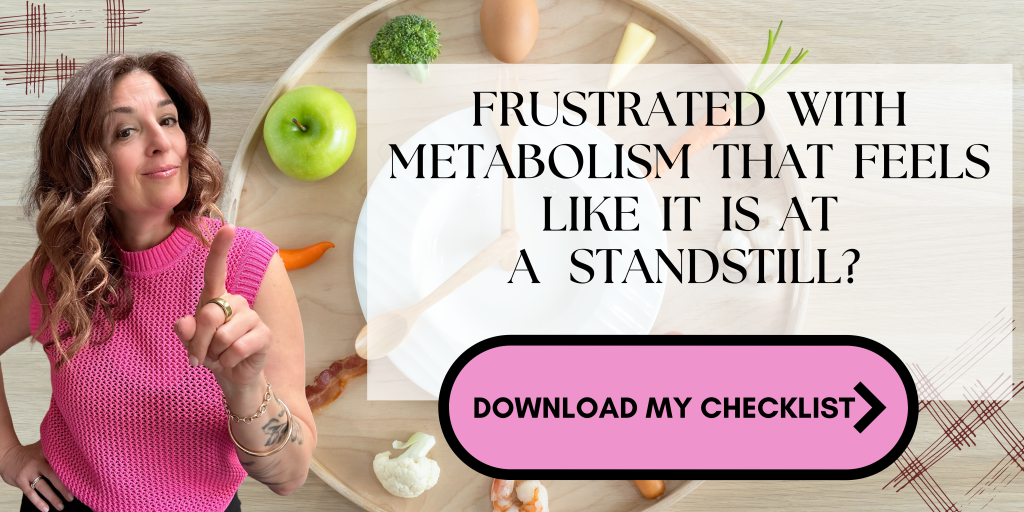Are you a woman over 40 who is looking to lose weight and improve your overall health? If so, you’re not alone. Many women in this age group are on a similar journey, and there are some key things that you should know as you embark on your weight loss and wellness efforts. In this blog post, we’ll explore six important factors that every woman over 40 should consider when it comes to achieving and maintaining a healthy weight.
Whether you’re just starting out on your weight loss journey or you’ve been struggling to shed those extra pounds for a while, these insights can help you make informed decisions and set realistic goals for your health and well-being. Let’s dive in and explore the five things about weight loss that every woman over 40 needs to know.
Skipping meals only works against you
Skipping meals can have a negative impact on metabolism and hinder weight loss in several ways. When we skip meals, our body’s metabolism slows down to conserve energy, which can make it harder to burn calories efficiently. Additionally, skipping meals can lead to overeating later in the day, as our bodies try to make up for the missed calories. This pattern can disrupt the body’s natural hunger and fullness cues, making it difficult to maintain a healthy eating pattern. In the long run, irregular eating habits can make it harder to lose weight and can negatively impact overall health.
It is best to fuel our bodies consistently throughout the day to support a healthy metabolism and sustainable weight loss. We recommend getting into the routine of eating 3 meals each day and at the same time. Your body loves routine and, when it feels safe knowing when meal time is each day, it will release unwanted weight.

Swap cardio for walking and weights
Many women on a weight loss journey may find that combining brisk walking with weight lifting can be more effective in burning fat than focusing solely on cardio workouts. Brisk walking helps to elevate the heart rate and burn calories, while weight lifting helps to build lean muscle mass. Since muscle burns more calories at rest than fat, increasing muscle through weight lifting can boost the body’s overall calorie-burning ability. The combination of weight lifting and gentle cardio, like walking, can be especially beneficial for women looking to achieve long-term fat loss and improve their overall health and fitness.
Calculate your fat-burning heart rate so you stay in the zone! Read “Help! I Need To Fix My Metabolism!”
This is why you keep hearing that you need to eat more protein
When women are trying to lose weight, it’s important for them to eat more protein for several reasons. Firstly, protein helps to increase feelings of fullness and satiety, which can prevent overeating and snacking on high-calorie foods. Additionally, a high-protein diet can help preserve lean muscle mass while promoting fat loss, which is important for maintaining a healthy and flexible metabolism. Finally, protein has a higher thermic effect compared to fats and carbohydrates, meaning that the body expends more energy metabolizing protein, which can aid in weight loss.
To calculate your protein needs, you can use a simple formula based on your body weight. The general recommendation for protein intake is around 0.36 grams per pound of body weight, or 0.8 grams per kilogram. However, if you’re more physically active or looking to build muscle, you may need more protein.
For a more personalized approach, you can use the following formula:
- Convert your weight to kilograms by dividing your weight in pounds by 2.2.
- Multiply your weight in kilograms by a factor based on your activity level:
- Sedentary: 0.8 grams of protein per kilogram of body weight
- Active: 1.3-1.8 grams of protein per kilogram of body weight
By using these formulas, you can calculate a rough estimate of your daily protein needs. Keep in mind that individual requirements may vary based on factors such as age, muscle mass, and overall health goals, and metabolism.
It’s not your willpower, it’s this
Ladies, if you’re over 40 and struggling with weight loss, it’s important to understand that it’s not just about willpower. Our bodies change as we age, and so does our metabolism. Instead of solely focusing on willpower, it’s crucial to understand the science behind our metabolism. Factors such as hormonal changes, muscle mass, and lifestyle can significantly impact our body’s ability to burn calories. By focusing on healthy eating, regular exercise, and understanding how to support our metabolism, we can achieve sustainable weight loss results. We recommend using wellness tools, like a metabolism tracker, to guide you along the way with the precise macronutrient ratios your metabolism requires on any given day.
Yes, you can (and should) occasionally eat carbs and drink wine (if you want to)
Carb cycling is a nutritional strategy that involves alternating between high and low carbohydrate intake on different days. This approach can help boost metabolism, as the body is constantly adapting to the changing carb levels, which may prevent metabolic slowdown often experienced with long-term calorie restriction. For any woman on a weight loss journey, it’s important to understand that carbs are not the enemy. In fact, carbohydrates are an essential source of energy and play a crucial role in supporting physical activity and overall well-being. By strategically incorporating carbohydrates into a balanced diet through carb cycling, you can optimize your metabolic flexibility and reach your desired weight. So, yes, once you have mastered your metabolism, enjoy your high carb days!

Insufficient sleep, water, and high stress can block weight loss
Insufficient sleep, dehydration, and elevated stress can all negatively impact weight loss. When you don’t get enough sleep, your body’s hormone levels can be thrown off, leading to increased feelings of hunger and decreased feelings of fullness. This can lead to overeating and difficulty in sticking to a healthy eating plan. Dehydration can also affect weight loss by slowing down the metabolism and make it harder for the body to burn fat.
High stress levels, or unmanaged stress, can lead to emotional eating and cravings for unhealthy, high-caloric foods, making it harder to maintain your weight loss goals. Managing these factors through good sleep hygiene, staying hydrated, and practicing stress-reducing activities like meditation or gentle exercise can support your weight loss journey.









Leave a comment